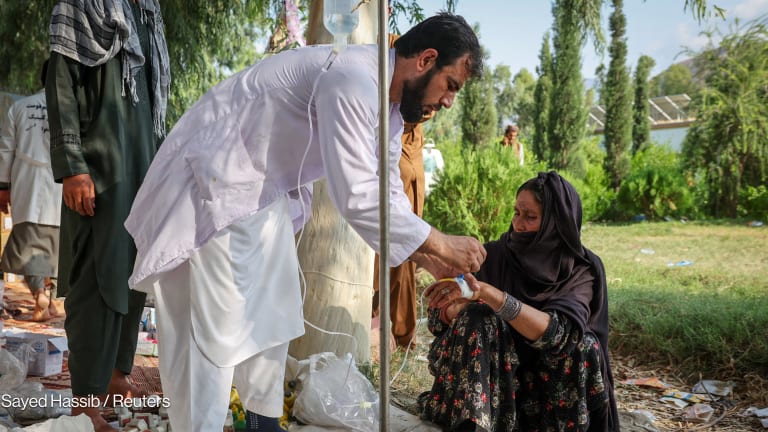A day after the United Nations appealed for more than $600 million in aid for Afghanistan, Secretary-General Ban Ki-moon made an unannounced visit to Kabul to speak at a press conference with embattled Afghan President Hamid Karzai.
"For the United Nations, Afghanistan will be a priority in 2009," said Ban on Wednesday. "I am here to demonstrate and to convey my strong commitment and support for peace and stability for… Afghanistan's people."
Ban urged greater coordination between donors and their partners to improve disbursal of the aid funds, more than half of which will go towards food aid. The overall plan involves 112 projects from 39 non-governmental organizations and eight U.N. agencies, and also addresses de-mining, education, sanitation and security in a country where more than 40 percent live on less than $1 a day.
International eyes are trained on Afghanistan. While President Obama urges NATO members to send more troops, the U.N. is concentrating on aid. The major hurdle for both remains insecurity - a problem highlighted by Tuesday's bombing of a key military supply route bridge on the Khyber Pass and the arrest of 17 members of a terrorist network based in Kabul, all of whom were of Pakistani origin.
Yet it is Monday's kidnapping of an American U.N. official just across the Pakistan border in Quetta that may be the most troubling.
All three incidents underscore the direct link between rising insecurity and the unsettled border regions. It is there, along the serpentine, still-disputed Durand Line - which divides Pakistan and Afghanistan, links the latter's opium belt to the former's ungoverned tribal areas and is rife with militant Islam - where the future of the region is likely to be determined.
On the Afghan side, the situation is likely to improve soon, with more troops and U.N.-backed aid on the way. But the brazen day-time kidnapping in Quetta threatens much-needed aid to Pakistan, where crime and poverty are already on the rise and a $750 million U.S. aid initiative launched in the tribal areas last year has made little headway.
With the economic stimulus package winding its way through Congress, Vice President Joe Biden's proposed $1.5 billion aid package for Pakistan has been moved to the back burner, against the advice of experts and USIP, even as trouble festers along the Durand Line and, across much of Pakistan, things fall apart.








